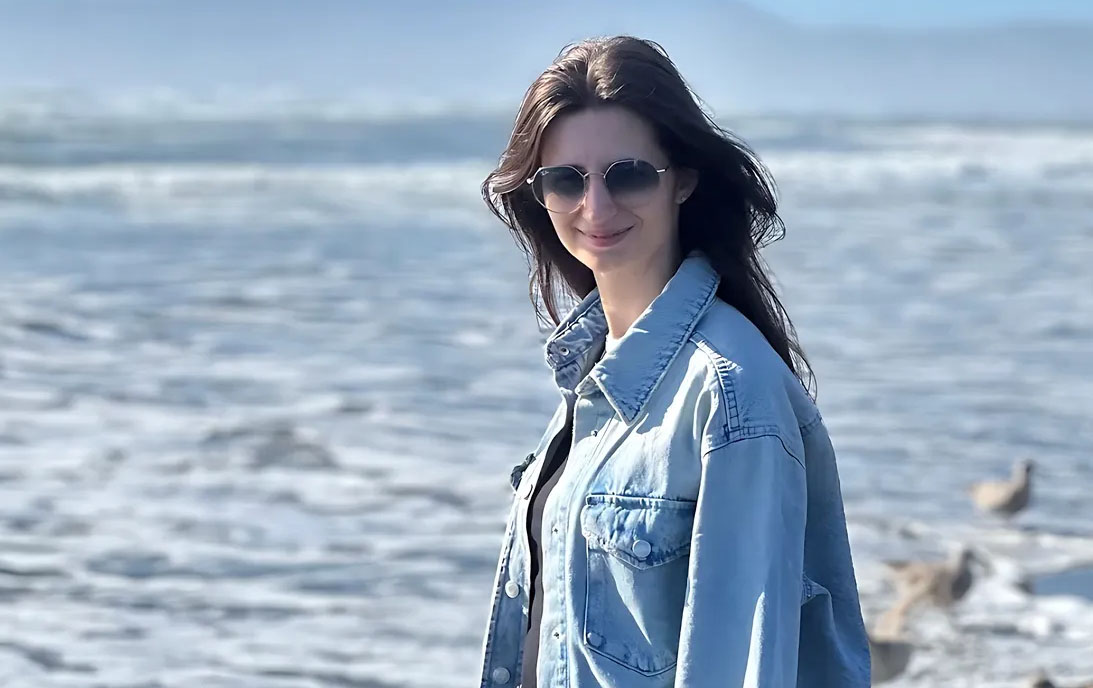Generative AI is crawling its way into every sector like a well-trained algorithm on a caffeine bender—and education is no exception. According to recent numbers, about 60% of teachers have already folded AI tools into their everyday classroom routines, from gamified lesson plans to virtual learning platforms that promise to keep students engaged and teachers only mildly exasperated. In higher ed, 58% of university instructors report using generative AI regularly. Meanwhile, students are clearly catching on: 54% of children now use AI to help with schoolwork, and 53% of college students use it to crank out content for assignments. If you’re not using AI in school, you’re probably still using a fax machine too.
So yes, the future’s here. But for Mariia Kozak, the founder of a generative AI consultancy called Code&Cakes, the story isn’t just about speed, scale, or the next buzzy product launch. It’s about the slow burn. The infrastructure. The intention.
In a tech culture drunk on disruption, Kozak is that rare thing: a builder who still believes in repair. And for her, the mission was never to chase the next unicorn—it was to hack a more equitable system into existence, starting with education.
“I’ve always believed education is the most powerful lever we have to break the cycle of poverty,” she says. And that’s not just mission-statement fluff. It’s a belief rooted in lived experience.
After moving to the United States, Kozak started over. New country, new rules, new systems to learn. That reboot led her to Level All, an edtech startup in New York with a bold agenda: make college access less of a buzzword and more of a pipeline. Kozak joined as the second full-time engineer, which meant there were no rulebooks—just decisions. Big ones. Like what the architecture of the entire platform would look like.
She didn’t just write code—she laid the foundations for what would become a student-first platform used by public schools and state departments. One of her standout contributions? Scholarship Finder, a tool that actually does what its name implies: helps high school students match with scholarships tailored to who they are, not who they wish they were.
It worked. Thousands of students gained access to tools that opened doors that had long been bolted shut.
But for Kozak, it wasn’t enough to build. She wanted to lead. To teach. To architect teams the way she once architected systems.
“What I discovered is that I love building teams as much as I love building software,” she says. That led to Code&Cakes—a name that sounds like it should come with frosting but is, in fact, a no-nonsense operation aimed at helping startups build elite engineering teams with the kind of psychological safety and clarity of purpose you don’t often find in high-growth tech environments.
Her pitch? Cut the chaos. Set the culture. Move fast, yes—but without breaking people.
At Code&Cakes, Kozak isn’t just a technologist—she’s a team architect. Her job is to partner with time-strapped CTOs and scaling startups, stand up reliable engineering pods, and keep everyone aligned when the pressure to ship turns from a sprint into a grind.
And if you’re wondering what her leadership philosophy sounds like, try this: “Magic is just discipline in disguise.” That’s a line she leans on, along with a quote from artist Chuck Close, who famously said, “Inspiration is for amateurs. The rest of us just show up and get to work.”
Translation? Don’t wait for genius. Show up. Repeat. Stack small choices until something big happens.
This isn’t code-for-hire mercenary work. It’s mentorship-as-infrastructure. Kozak’s teams are designed to be resilient, not just productive. Engineers learn. They grow. Juniors become seniors. Seniors become mentors. And the companies? They get stability in an industry addicted to volatility.
The clients most interested in Code&Cakes? The ones racing to make AI usable without blowing past their own ethical guardrails. Startups riding the generative AI wave. Education firms looking to scale without selling out.
“We work with organizations that care not just about what they’re building,” Kozak says, “but why.”
Of course, there’s still the person behind the platform. Kozak keeps close the memory of a childhood friend who once described engineers as “modern-day wizards.” And she hasn’t lost that wide-eyed belief in software as spellcraft—not the flashy kind, but the slow, deliberate kind. The kind that changes outcomes quietly.
She’s not here to break things. She’s here to build ladders.
Her long-term vision? Stay at the intersection of education and technology. Build not just intelligent tools but humane ones. Create systems that help people climb—not just socially, but structurally.
If Code&Cakes succeeds, it won’t just be another consultancy that helped startups scale. It’ll be the quiet force that helped someone’s kid get to college. Or a young engineer rise through the ranks. Or a small company do something better than it thought possible.
Because in Kozak’s world, the real magic isn’t in invention. It’s in intention.





























